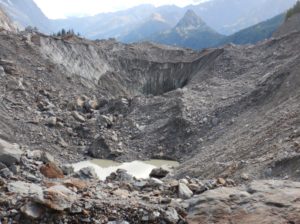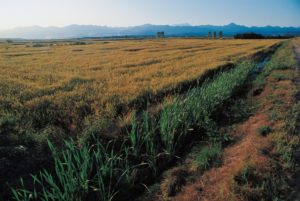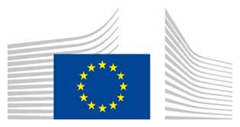STARTS4Water is a pilot project selected following the European Commission’s DG CONNECT call “Art and the digital: unleashing creativity of European water management”, seeking to unite digital technologies with arts/artists/creatives to promote a strong unified European policy vision on the future of water by involving art and advanced technologies to create new water realities through a series of artistic residencies. Combining art, technology and science, the project in fact aims at tackling one of the most urgent challenges of our time, i.e. a sustainable use of water. As reported in a previous article, STARTS4Water will therefore support artists, researchers, technology experts and other interested parties in the search of a common ground and a suitable language to respond to territorial challenges related to water. With this in view, STARTS4Water has launched a call for artists for ten residencies in six different locations, kick-starting a series of collaborative processes that will generate projects that raise awareness and offer concrete solutions for regional water challenges in Europe.
The residencies
Each residency addresses a different region-specific water management challenge and relates to the UN’s Sustainable Development Goals (especially SDG6 and SDG14). The challenges have been defined by the Consortium partners with the support of a regional expert network including digital experts, entrepreneurs, regional leading art and research institutions, specialists in digital transformation, administration and public governance.“The STARTS4Water residencies – reads the dedicated press release – will lead to tangible artworks that develop knowledge and raise awareness of water challenges, or to digital applications and processes that contribute to the local development of sustainable water use and management”. Placing themselves at the vital hub between the local and the global, and at the crossroads of art, industry and technology, eleven STARTS4Water residencies will critically address environmental issues, transform the way we manage our shared global habitat and create new narratives and strategies for understanding, enhancing and governing the use of water in a more inclusive, integrated and sustainable way. A series of 101 events (conferences, networking events, acceleration events, expert meetings, workshops, summer schools, presentations, exhibitions etc.) will facilitate the sharing of knowledge on local and regional water challenges between communities and industry in Belgium, the Netherlands, Greece, Croatia and Italy, building a more complete picture of needs and issues, and leading to better decisions by both water providers and users/citizens in regards to sustainable water management.

Photo by Marco Giardino.
The Piedmontese regional challenges
The STARTS4Water artistic residencies will therefore deal with challenges rooted in local and regional contexts, with water as the common denominator. Two of them* will develop in Piedmont: Rebuilding Relationships with Fluvial Systems: Exploring People’s Relationships with Rivers and Streams and Rebuilding Relationships with Fluvial Systems: Fluvial Systems as Indicators of Climate Change and its Impact.
In the first one, artists are invited to approach rivers** as ecosystems marked by a precarious balance between resources and consumption. “The concepts of common good and shared use, when applied to rivers, open the possibility of defining new forms of relations between uses, protection and enhancement. We invite artists to use digital technologies such as AI, sensors, data collection, infographics, augmented reality” explain the organisers. The artists are called to analyse the links that human beings establish with fluvial systems in relation both to the consumption and exploitation of this water resource and to the impact that human activities have on this water ecosystem.
In the second challenge, the participants are invited to use digital technology (such as AI, sensors, data collection, mathematical modelling of fluvial processes, infographics and augmented reality) to develop a project that seeks to reflect on how we can anticipate and adapt to the new conditions brought about by extreme events and the resource depletion caused by climate change, whether ongoing or inevitable in the near future.
In the area between the western Alps and the western Po Valley, in glaciers, snowfields and mountain springs, important rivers such as the Po, Tanaro, Ticino, Dora Baltea, Bormida, Agogna and Sesia, among others, are born. These fluvial systems are an essential component of the natural ecosystem and fundamental for human life. The artist’s challenge in developing the project consists in reading, interpreting and sharing the signals that the fluvial systems in this region produce about the fragility of the environment and the transformations due to climate change. Is it possible to conceive fluvial systems as sentinels of climate change and of the vulnerability of territory, both of these amplified by human action? “We are looking for artists who are able to interact with experts from different disciplines, and who are disposed to actively listen to the needs, questions and ideas arising from both society and science and digital technology – reads the abstract of the project – in addition, they will be able to translate the ideas and processes circulating within the scientific sector into artistic projects which impact society, inspiring, promoting or continuing processes of positive transformation”.

Photo by Fabrizio Lava.
The selections
A jury formed of regional professionals will pre-select the most suitable candidates at the beginning of September. A twelve-member high-level jury, nominated in agreement with the European Commission, will then select the final ten artists or artistic groups. The results will be announced at the end of September and the residencies will take place from October 2021 to June 2022 (maximum 6 months). The open call remains open until Monday 30th August 2021 at 23.00h CET. The budget for each residency is 40.000€, including artwork production and artist fee. Throughout the residencies, the STARTS4Water Consortium will offer the necessary expertise and support from ICT experts and art curators affiliated with renowned art centres, research institutions, universities, university colleges, innovative companies and start-ups.
The behind-the-scene: S+T+ARTS (Science, Technology & the Arts) e STARTS4Water
STARTS is an initiative of the European Commission to foster alliances of science, technology and the arts that effectively implement a European approach to technological innovation centred on human needs and values. Science, Technology and Arts form a nexus with an extraordinarily high potential for creative and reflective innovation. And such innovation is considered to be precisely what is called for to master the social, ecological and economic challenges that Europe is facing. With disruptive methods of exploration and an accurate critical eye on the use of technology, artists decisively raise awareness of the current societal challenges and global concerns. Artistic practices are seen as innovative processes and have a wide-reaching potential to contribute to the development of new economic, social and business models. Through ten artistic residencies and a series of STARTS Academy workshops, intersectoral and transversal networking activities, field expeditions and discussions involving local subjects, STARTS4Water will engage with wider communities and propose new narratives to inform and communicate on a common challenge. The STARTS4Water Consortium is led by LUCA School of Arts (Belgium) and includes Thyssen-Bornemisza Art Contemporary – TBA21 (Austria), Universal Research Institute (Croatia), V2_Lab for the Unstable Media (The Netherlands), Ohi Pezoume/ UrbanDig Project (Greece) and Cittadellarte – Fondazione Pistoletto (Italy), in collaboration with STARTS partners Gluon (Belgium) and BOZAR (Belgium).
Per tutti i dettagli sull’open call cliccare qui.
Please click here for all the details on the open call.
For further information: STARTS4Water Open Call website.


